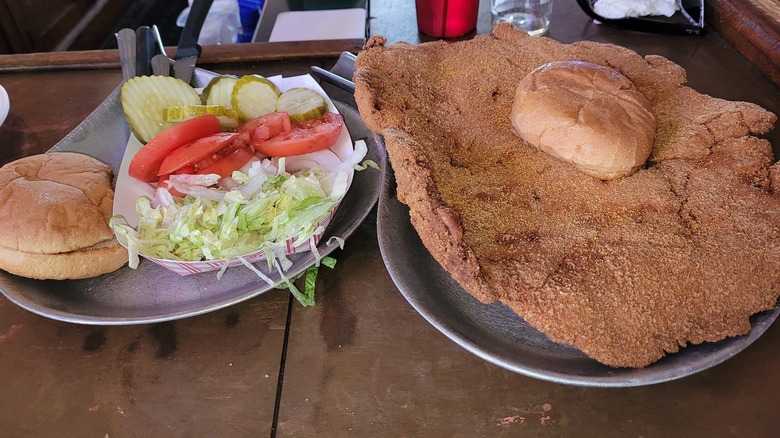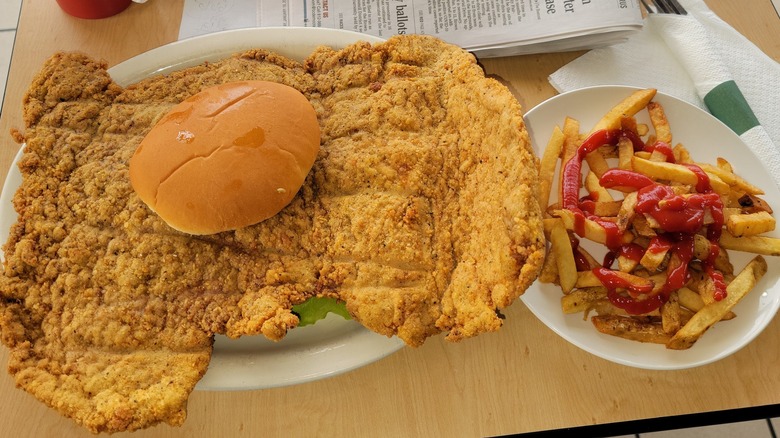BPT: The Fried Midwestern Sandwich That's Too Big For Its Bun
The one thing you can safely say about regional cuisine is that people inevitably disagree about it. That's part of the appeal, of course. At the heart of the Philly cheesesteak's lore is the catty-corner rivalry between Pat's King of Steaks and Geno's Steaks. Texas lays claim to chicken fried steak, though you can find versions of breaded and fried cube steak throughout the south. Devotees of a regional food argue over who did it first and who does it best. Are there ingredients that are required? Those that are verboten?
Many favorite dishes from around the U.S. are rooted elsewhere. Transplanted people bring with them their food traditions, and they adapt those recipes to suit the foods available in an area. Take the Austrian classic, Weiner schnitzel, which The Spruce Eats tells us is a veal cutlet, coated in breadcrumbs and deep fried. When German immigrants settled in the U.S. that beloved Weiner schnitzel adapted to its environment. In Texas, for example, it became chicken fried steak. In the Midwest, it took a different form.
The breaded pork tenderloin is a Midwest classic
People mostly agree on the origin story of the breaded pork tenderloin sandwich, born in Indiana and affectionately called the BPT in Iowa, according to Eater. The son of German immigrants, Nick Freienstein created his riff on Weiner schnitzel in Huntington, Indiana in 1904. He pounded out pork tenderloin, rather than using a veal cutlet since that's what he could put his hands on at the time. Freienstein added pickles and onions to his pork tenderloin, which he put on a sandwich roll and sold from a cart. People liked the tenderloin sandwiches so much that he founded Nick's Kitchen in 1908, a restaurant that still operates in its original location.
One of the hallmarks of the BPT is its out-of-whack proportions. The pork tenderloin is pounded out to an enormously large size before it's deep fried and placed on a sandwich roll, which, ideally, looks ridiculously small in comparison. In fact, the Des Moines Register likens the bun of a BPT to "a beret on an elephant." Another hallmark of regional food discussions is drawing a comparison between the food and the character of the people who create and enjoy it, and the BPT is no exception. Iowa Magazine declares, "The sandwiches are, in many ways, the embodiment of Midwestern values—nothing fancy, but considerably more complicated than they initially appear."

